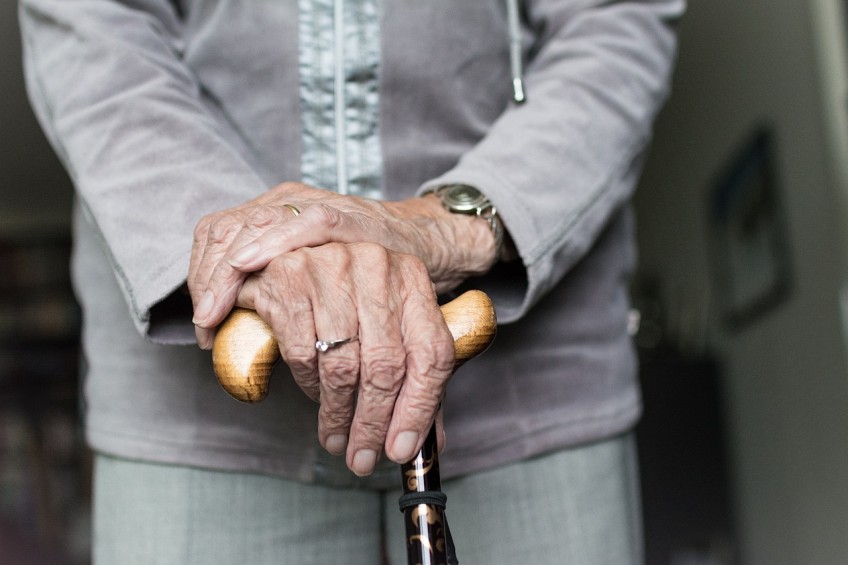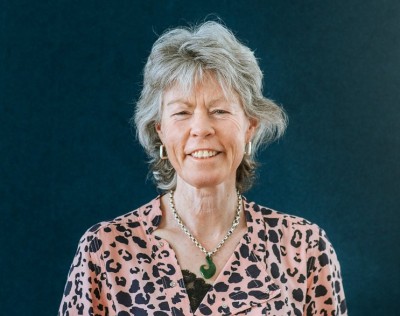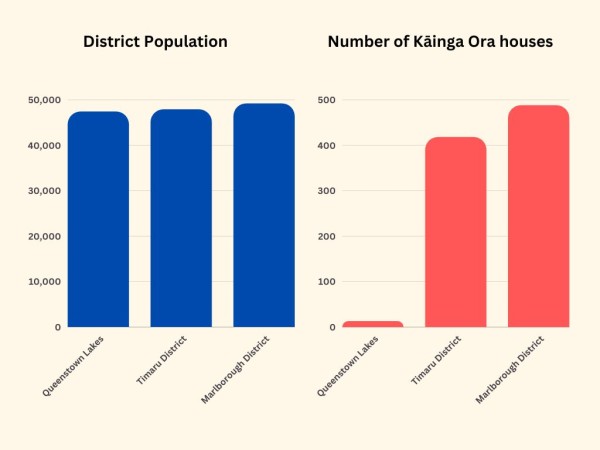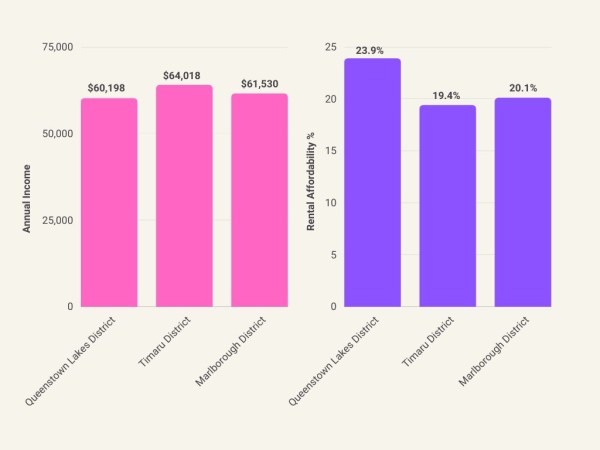
Upper Clutha housing crisis: 60 living in a tent, almost 80 and flatting
Upper Clutha’s housing crisis means there’s an 80 year old flatting in a shared house because there’s nowhere else he can afford to go.
His social worker, Heather Clay, says “he seems all right with it, but he's becoming a little bit of a burden to the flatmates”.
There are other Wānaka locals Ms Clay's encountered who are in their early sixties, with chronic health conditions, and living in a tent and caravan, staying in campgrounds with limited facilities.

Wānaka social worker Heather Clay is worried.
“There’s no in-built shower and toilet…and it requires a motor vehicle to get up to either the Albert Town store or come in here to Wānaka.
“Imagine going elsewhere, just to have a shower or to the toilet.”
Ms Clay knows of six older people in Wānaka living in inadequate situations like this – but there could be more, she says.
Working for Community Networks/LINK, Ms Clay's been in Upper Clutha for a decade and a half and continues to see this age group and demographic neglected, saying “there’s not really anything for them”.
They aren’t eligible for the residential care subsidy because their health is too good, Ms Clay says. She notes most elderly don’t end up in rest home care, estimating only 10 to 20 percent of people do.
“This is not a health issue, it’s a housing issue.”
There’s also very few retirement villages locally, and those that are, like the Wānaka Retirement Village, or the Queenstown Country Club, are well outside the price range of these people she works with.
Ms Clay says for these clients, budgets have been tight throughout their adulthood, with health issues and family breakdowns reducing their ability to earn and have autonomy over where they live.
So, what’s the solution?
“Call me old fashioned, I am and I'm a social worker. I see this as a local and central government responsibility, but that's not necessarily the modern way," she says.
“QLDC could have in the past and still could choose to build social housing.”
Central government’s Kāinga Ora (Housing New Zealand) has also neglected to provide state houses for Upper Clutha and Queenstown.
“Similar sized towns to this or even smaller…have more social housing per capita than what we would have here by a long shot,” Ms Clay says.
The Queenstown Lakes District has only 13 Kāinga Ora homes and they’re all full.
Of New Zealand’s 63 districts, Queenstown Lakes District is number 60 on the list, third from the bottom on Kāinga Ora’s list of subsidised rental housing stock.
To put Ms Clay’s words to the test, the Queenstown Lakes District has an estimated population of 47,400 and 13 homes.
Malborough District has a residential population of 49,200, and 488 Kāinga Ora homes.
Timaru District has 47,900 and 418 homes.

Ms Clay says similar-sized towns – but not resort towns - have got these things, and have had them long-standing.
“I'm not quite sure why we don’t have any here. I don’t believe it’s a priority in many people’s thinking.”
According to data from Infometrics, a New Zealand economic advisory company, the average annual income of these two districts compared to Queenstown Lakes is similar, but slightly higher.
However, rentals are much more affordable for non-resort towns. Infometrics calculated rental affordability as a percentage by comparing average weekly rents with average weekly household income.

“We know that housing's a country-wide problem, but I do believe here it’s possibly bigger per capita than it is in other areas.
“These two towns (Queenstown and Wānaka), they’re not small town New Zealand. No, they’re resort towns and the priorities are different.”
Ms Clay says that because of the lack of housing, people haven’t put their names on the waitlist.
“People haven’t put their names on it, because there’s not a lot of point.”
But it also means there isn’t a true picture of the real number in need.
She acknowledges the Queenstown Lakes Community Housing Trust does a great job, and some of her clients are on its housing waiting list.
Senior housing falls under either the QLCHT's public housing rental scheme or the affordable rental scheme, and as per the housing trust’s last annual report, 50 public rentals have been given out, and 10 affordable rentals.
In the interim, Ms Clay is quite concerned about these people, believing they'll hit a "crisis" point, before there's a solution.
"I am very worried... and they (people living in these situation) are worried about it."





























